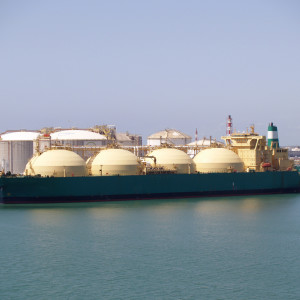While America’s political eye is focused on next week’s New Hampshire primary, this also could mark a big week on Capitol Hill. The U.S. Senate is set to vote on S. 2012, “Energy Policy Modernization Act,” the first comprehensive energy legislation Congress has taken up in just shy of a decade. Indeed, we may finally see some significant changes in how the U.S. approaches certain energy policies.
The fact is much has changed in the U.S. since the last energy bill was passed. Our energy renaissance has drastically changed the energy landscape and left us with policies that no longer meet the growing needs regarding infrastructure, federal agencies, and trade. This bipartisan bill is a historic opportunity for senators on both sides of the aisle to institute energy-related priorities that promote economic growth and global competitiveness.
Amid the over 400-page bill is one key section that could embody this change and have tremendous implications for the U.S. and small businesses. The provision would expedite the review of applications to export U.S. liquefied natural gas, specifically calling on the Secretary of Energy to issue a final decision on any application no later than 45 days after a final review by the Federal Energy Regulatory Commission (FERC).
During my time as chief economist for the Small Business & Entrepreneurship Council, an organization that works to protect small business and promote entrepreneurship, I have written extensively on this very issue, repeatedly calling for expedited approval of U.S. LNG export applications. Therefore, it is encouraging to see the Senate trying to fix an inefficient system standing in the way of energy projects that are clearly in the public interest, including for the small business community.
The U.S. is the largest petroleum and natural gas producer in the world, and we continue to discover more energy resources due to technological advancements and innovation. And with natural gas reserves up to record levels, it follows that our producers should turn to the international marketplace, as with any other commodity. Export opportunities will result in expanded U.S. production, and in turn, small business growth.
Consider, for example, that the overwhelming majority of businesses doing the investing and innovating in the energy sector are small firms. For example, 90.7% of employer firms among oil and gas extraction businesses, 78.1% of drilling oil and gas wells businesses, and 81.5% of firms among support activities for oil and gas operations businesses have less than 20 workers.
And as report after report has found, the growth in the energy sector would mean economic benefits for states across the nation. A study from 2013 found that LNG exports could increase U.S. gross domestic product (GDP) by $115 billion and the President’s own Council of Economic Advisers reached the conclusion last year that LNG exports would “increase our GDP, create jobs, promote cleaner energy around the globe, all while maintaining a competitive cost advantage for U.S. manufacturers who thrive off cheap domestic natural gas.”
This conclusion was even confirmed in just the last few months, as a second DOE commissioned study (“The Macroeconomic Impact of Increasing U.S. LNG Exports”), found the benefits of increased LNG exports were as the report co-author Kenneth Medlock noted, “In sum…positive for the U.S. economy.”
But the current system of approval for LNG exports by the DOE and FERC is bringing all of these economic forecasts into question. Currently, there is no set deadline for DOE to complete review, and the longest application has been pending for more than four years.
The good news is that Congress acknowledged the need for a change in this process with legislators on both sides of the aisle recognizing the importance of natural gas to our economy and energy future. In fact, six Democrats co-sponsored the language on LNG exports as a separate piece of legislation, which is now incorporated into this energy bill.
The United States is now a global energy powerhouse. Increased LNG exports would boost incentives for further natural gas production in the U.S. and bring additional benefits in terms of economic, employment, business and income growth from coast to coast. By changing our LNG export policy, Congress is truly modernizing our outlook on energy to be harmonized with a 21st century outlook.

